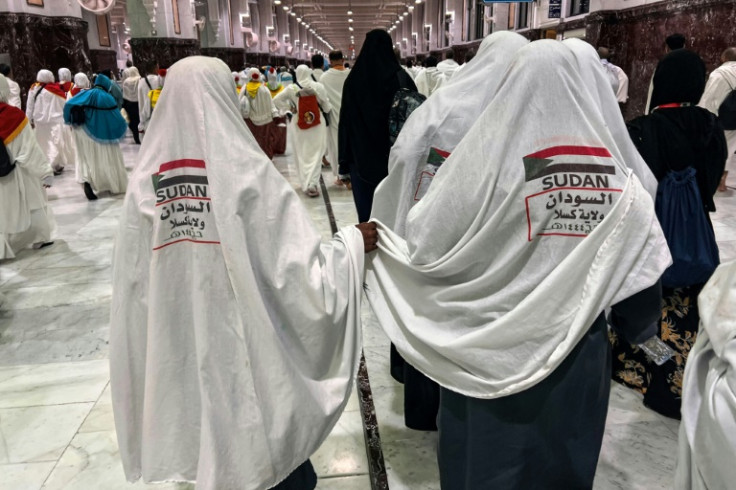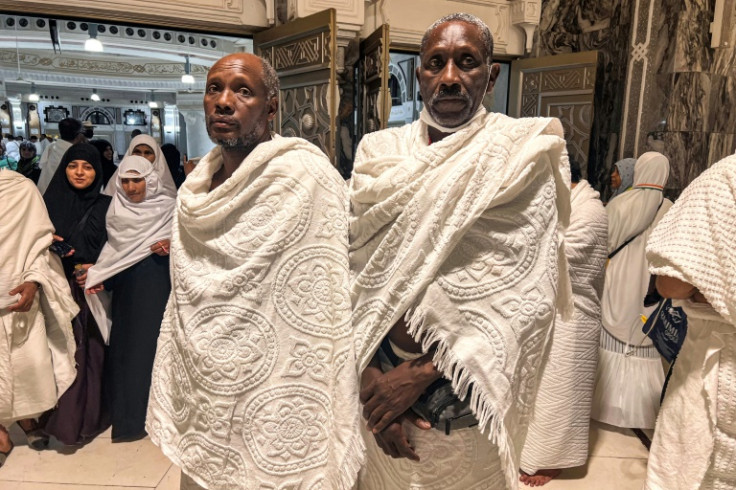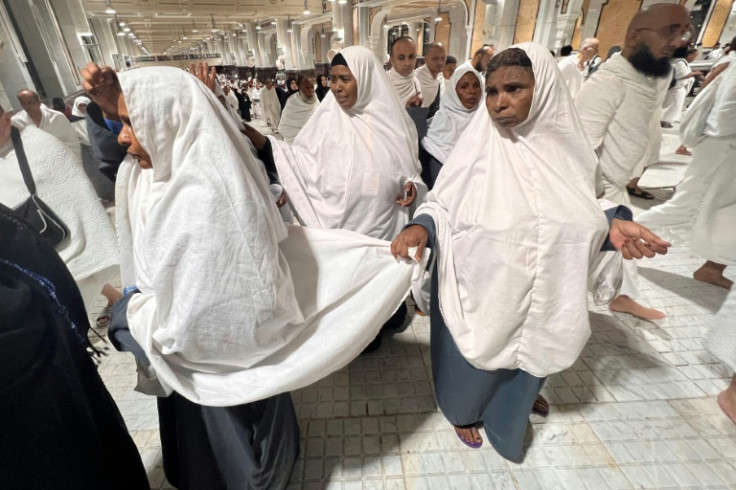Sudanese Hajj Pilgrims Pray For 'God's Intervention' To End War

The hajj pilgrimage has given Sudanese faithful Kamal Kabashi a brief respite from his country's bloody conflict. Having safely arrived in Islam's holiest city, he was praying for peace.
Only weeks ago his home in North Darfur state, in Sudan's west, was hit by shelling as a power struggle between rival generals spiralled into an all-out war.
Kabashi, his wife and their five children were unharmed as they had relocated to a safer neighbourhood of El Fasher, the state capital, days before.
Now, after a perilous four-day journey by land and sea, Kabashi has joined more than one million worshippers on the annual pilgrimage to the Saudi holy city of Mecca.
"I am very afraid for my family and children," said the 52-year-old government employee, dressed in the simple white robes worn by hajj pilgrims.
"I raise my hands to God almighty and ask him to solve the problem of Sudan," he told AFP from Mecca's Grand Mosque, the world's largest.
Fighting since mid-April between Sudan's regular army and the paramilitary Rapid Support Forces has claimed more than 2,000 lives.
It has largely been concentrated in greater Khartoum and in Darfur, a vast region on Sudan's western border with Chad.
The conflict has plunged Sudan into chaos, with combatants occupying homes, looting properties and committing other abuses.
Artillery "shells fell inside my courtyard... severely damaging my house", Kabashi said.
Travellers from around the world have been pouring into the modernised airport in Saudi Arabia's coastal city of Jeddah before hajj rituals begin on Sunday night.
But pilgrims from Sudan are mostly arriving by boat because Khartoum's airport -- the country's main aviation hub -- has been put out of service by the deadly fighting.
To make it to Mecca, Kabashi risked a more than two-day road trip to Port Sudan in the east. There he boarded a ship that took him across the Red Sea to Jeddah, a journey that lasted nearly two more days.
Kabashi, who has performed hajj once before, was accompanied by his friend, Ahmed Jaber, who was making the pilgrimage for the first time.
Jaber, a 62-year-old merchant, said he paid more than $4,300 in fees and had been preparing for months for the hajj -- one of the five pillars of Islam which must be undertaken by all Muslims with the means at least once in their lives.
He thought his loved ones would be the main subject of his prayers, but "now I do not only pray for my family, I pray for all Sudanese," he said, fighting back tears.
"We only dream of peace."
Almost 600,000 people have fled Sudan for neighbouring countries, the International Organization for Migration says.
And more than two million are displaced inside Sudan, according to the UN High Commissioner for Refugees.
Those who have made it to Mecca walk in groups, their country's flag printed on their white robes.
For maths teacher Haram Ali, arriving in the holy city meant being able to relax for the first time in months.
"I am mentally at ease and I pray for peace for all Sudanese so that they too can feel the same comfort," said the 49-year-old, calling her pilgrimage "a gift from God".
"I have recovered from the fatigue of Sudan," she said, raising her hands to pray as tears streamed from her eyes.
Standing nearby, Maha Abdullah, a 50-year-old housewife, said "the situation is difficult" back home.
"It needs God's intervention to change things."


© Copyright AFP 2025. All rights reserved.





















